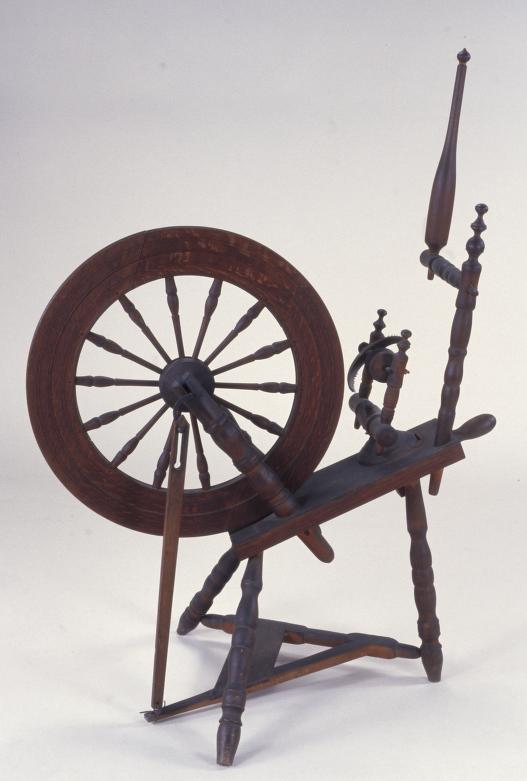




Advanced Search
| Online Collection |
|
|||||||||||||||||||||||
|
Women used this foot, or flax, wheel to spin the pale, hair-like fibers of the flax plant into linen thread. Transforming flax into linen was a laborious and complex process that was generally less common in America than spinning more easily processed sheep's wool into yarn. Colonial governments awarded bounties to encourage the growth and production of flax but Ireland emerged as the British Empire's main producer of flax. What linen Americans did produce was usually in small quantities for individual domestic use. During the colonial boycotts of English goods leading up to the American Revolution, however, men and women throughout the colonies clothed themselves in homespun to protest parliamentary taxation and representation policies. Women gathered for "spinning bees," determined, as one young woman from New York declared, to form "a fighting armey of amazones...armed with spinning wheels."
|
Flax Wheel
|
| |
Home | Online Collection | Things
To Do | Turns
Exhibit | Classroom | Chronologies | My
Collection
About This Site | Site Index | Site Search | Feedback


